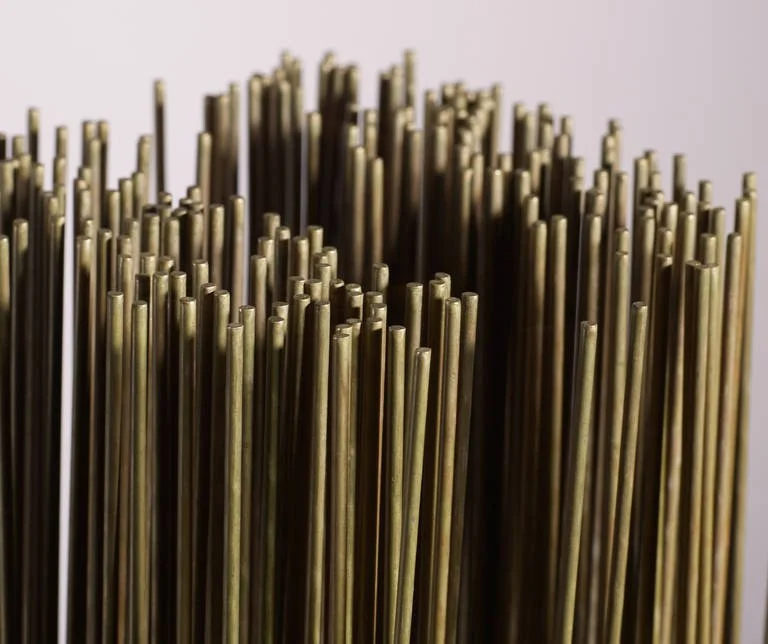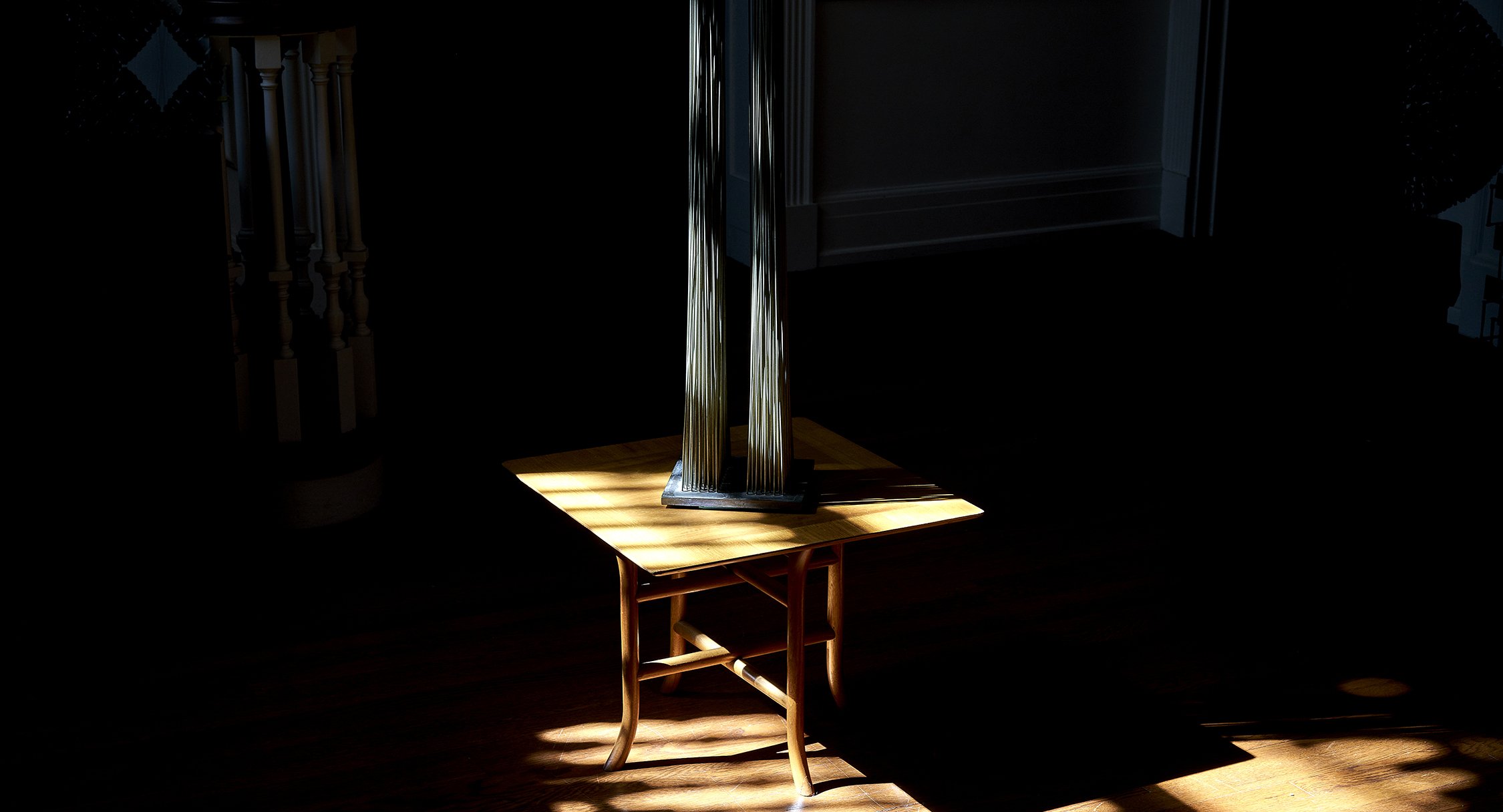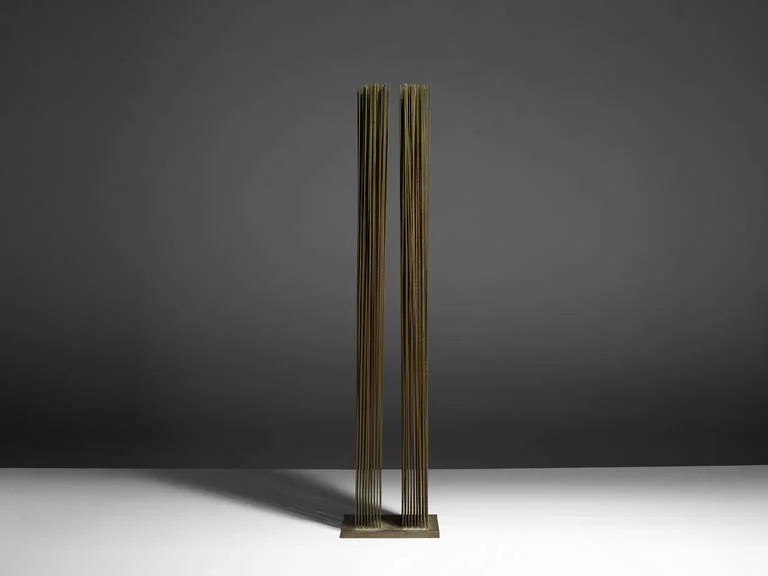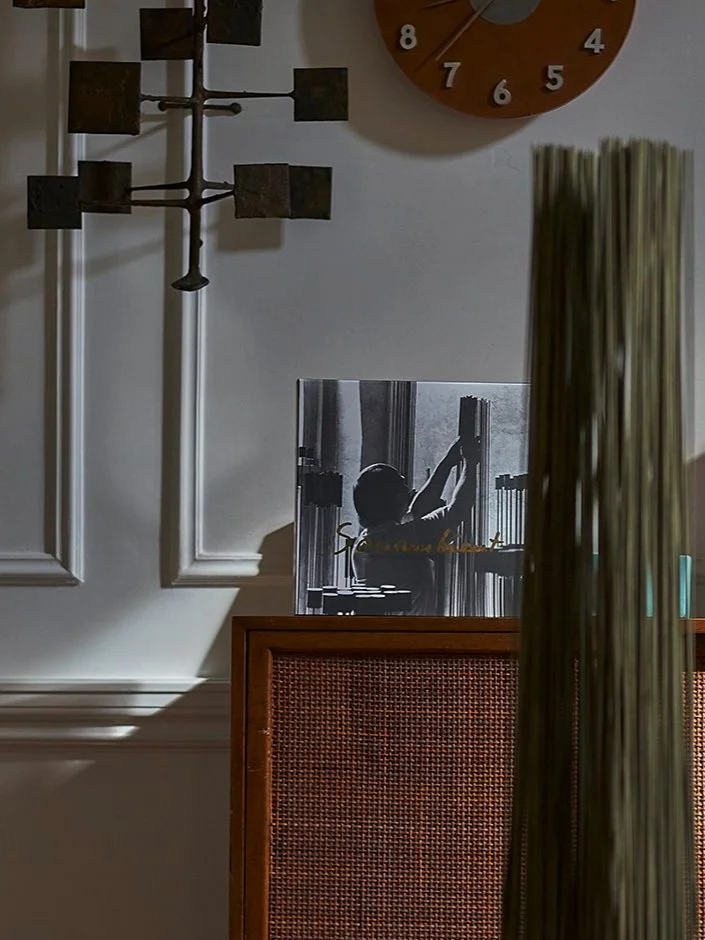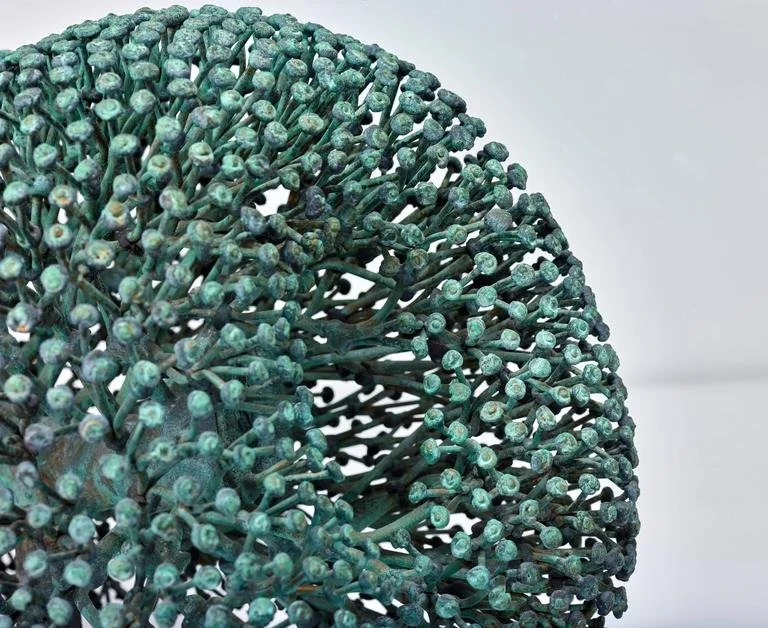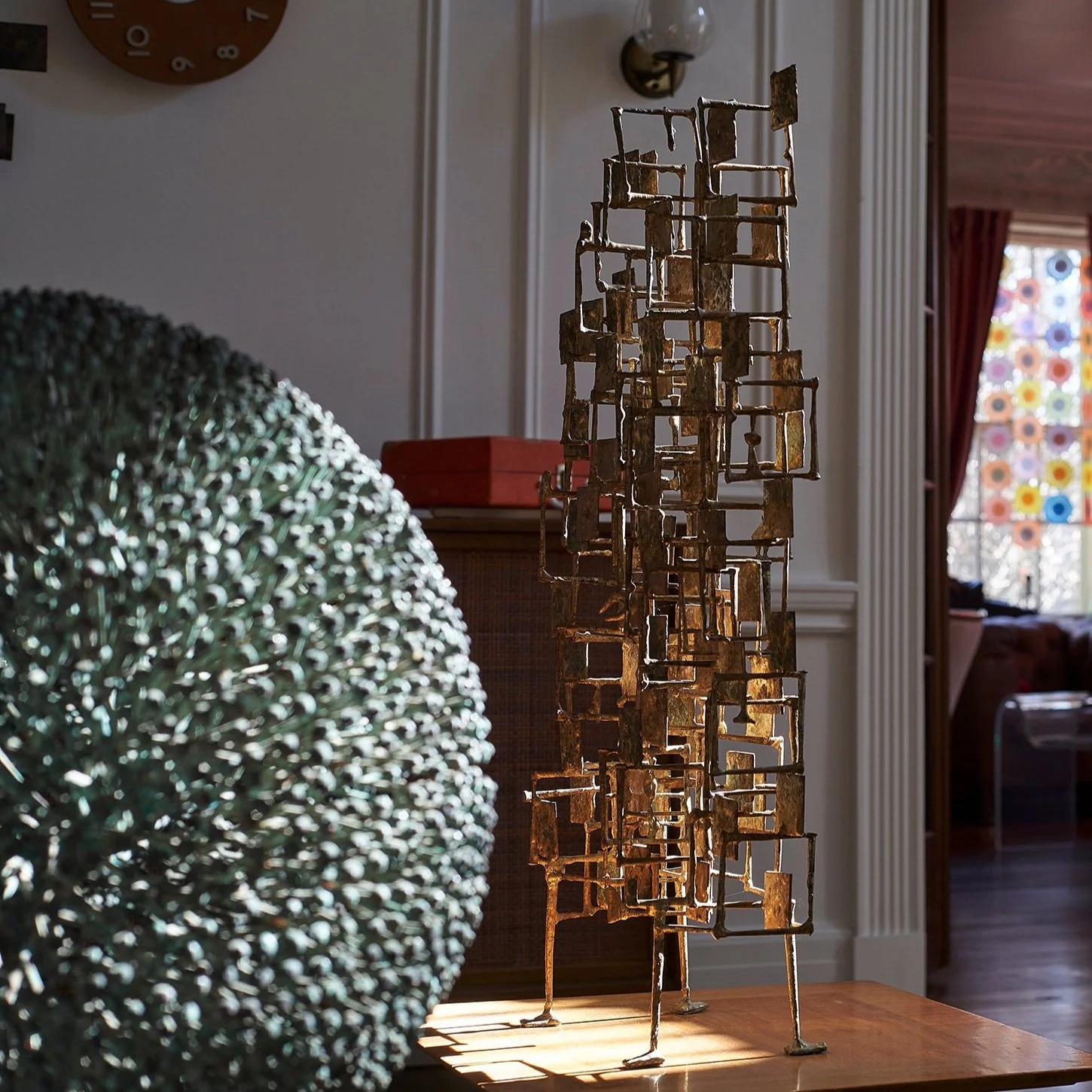Harry Bertoia Pair of Sonambient Sounding Tonals circa 1960s and 1970s
Pair of Harry Bertoia Sonambient Tonals
Early example circa 1960s and 1970s
Each sculpture with double row beryllium copper and brass rods
36.5 h x 8 w x 8 d in
28 lbs each
10% of Harry Bertoia sales will be donated to the Harry Bertoia Foundation
Pair of Harry Bertoia Sonambient Tonals
Early example circa 1960s and 1970s
Each sculpture with double row beryllium copper and brass rods
36.5 h x 8 w x 8 d in
28 lbs each
10% of Harry Bertoia sales will be donated to the Harry Bertoia Foundation
Pair of Harry Bertoia Sonambient Tonals
Early example circa 1960s and 1970s
Each sculpture with double row beryllium copper and brass rods
36.5 h x 8 w x 8 d in
28 lbs each
10% of Harry Bertoia sales will be donated to the Harry Bertoia Foundation
Explaining his sonambient sculptures Harry Bertoia recounts
”When I was a very young boy, living in a small Italian village, I sensed one day that a celebration was about to take place […] and someone told me, ‘Yes, a bishop from China is coming for a visit.’ All the cathedral bells in all the little village were ringing, and the visitor from China seemed to me to fill the world with a wonderful sunny color. I think my work with sound may be an attempt to recapture the magic of that moment but, of course, it’s much more than that."
Harry Bertoia invented the word sonambient—a combination of sound and environment—to describe his sculptures that make sounds when they are manipulated. In 1959, the artist was creating a sculpture out of standing rods when he bent one rod too far, snapping it into pieces. As the broken rod crashed against the others, it made a reverberating sound. This accidental occurrence inspired him to further explore the possibilities of incorporating sound into his work, and over the next decade, he made over one hundred sonambient sculptures, each with a unique sound. From 1968–69, Bertoia remodeled the barn where he created his monotypes so that he could arrange his sonambient sculptures into an orchestra and perform concerts for guests. Inside the modest structure, the sound would appear to ripple through the space, becoming louder and softer as the sculptures hypnotically swayed to a quiet stillness. Together, the sounds are like a call and response between the varied tones and pitches.
Source Woodmere Art Museum





